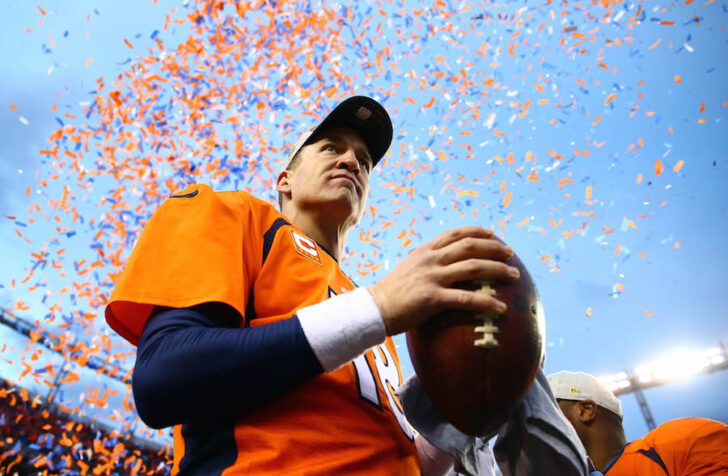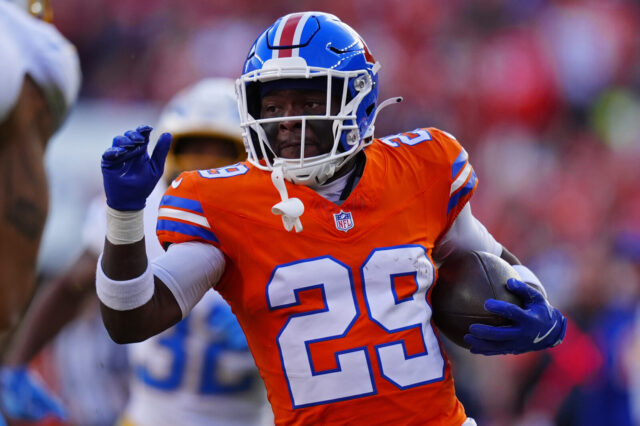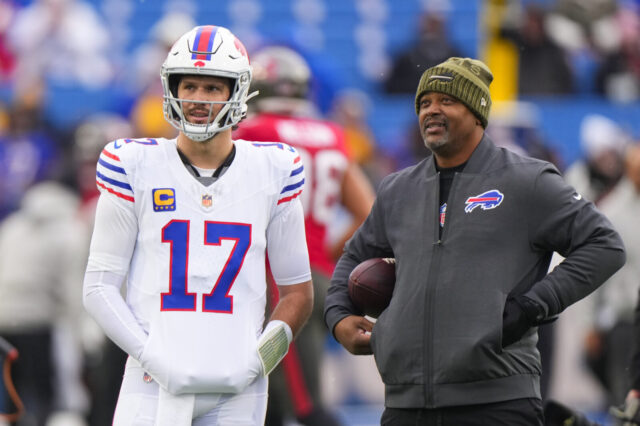Today, one of the greatest athletes of the past century will announce his retirement. Peyton Manning, a quarterback who redefined the most-important position in all of sports, will hang up his cleats after 18 illustrious seasons in the NFL.
As a result, there will be a flood of well-deserved homages paid to the Broncos quarterback. From all walks of life, inside of football and outside the game, people will be chiming in to pay their respects to one of the best players in the history of the league.
Without a doubt, all of it will be appropriate. The accolades heaped upon Manning today, and in the coming weeks, will hardly do justice in representing the impact he’s had upon professional football, both between the white lines and away from the game.
Thus, it’s a daunting task to sit down to pen a column that is set for publication on the day Manning is set to announce his retirement. Trying to craft a narrative that sums up everything he has meant to the sport of football is a Herculean task.
So, I won’t even begin to go there. Plenty of other people will take on that mission today; there will be no shortage of tributes that highlight Manning’s many accomplishments.
They’ll talk about this five Most Valuable Player awards, the most in NFL history. They’ll point out his records, as his name sits atop almost every notable passing mark that the league bothers to track. And they’ll highlight the fact that he’s won more games than any quarterback to ever play the game, including the distinction of being the only signal caller to ever lead two different franchises to a Lombardi Trophy.
All of those achievements are worth noting; all of them will also be noted when Manning is eventually enshrined in Canton five years from now. But none of them are the reason why No. 18 will forever be endeared in the hearts of those who bleed orange and blue.
The affection that Broncos Country has for Manning goes beyond 55 touchdown passes; it runs deeper than a 45-12 record during his tenure in Denver. The quarterback’s impact on the Mile High City isn’t just about numbers.
Instead, it’s about reigniting a phenomenon. During his time in Denver, the quarterback fanned a flame that had dwindled to a flicker.
For me, the low point of Bronco Mania came on Dec. 12, 2010. On that date, the Broncos traveled to Arizona to play the Cardinals and were soundly defeated by a 43-13 count; it’s the game that is widely remembered because Jay Feely, the Cardinals kicker, outscored Denver on his own, getting on the board via five field goals, four extra points and a five-yard touchdown run.
It was the abyss of an otherwise disastrous season. And it was the moment that made me question my allegiance.
That day, I was sitting in the stands, alongside 10 other members of my family. We had made the trip to Phoenix to watch the game, booking the getaway prior to the season in an attempt to enjoy a little sunshine during the harsh Colorado winter. But despite the sunshine that greeted us in Arizona, the excursion was hardly worth the effort.
We would have been better off to save our money and stay home. It would have made more sense to stay at the hotel and enjoy a day at the pool. Anything other than buying 11 tickets to watch the debacle at University of Phoenix Stadium would have been a good decision.
As a result of that trip, things changed in our household. The season tickets that had been in the family since 1968 were relinquished. Family vacations were no longer planned around the NFL schedule. Sundays in the fall weren’t blocked off for Broncos games any more.
And this was no knee-jerk reaction. It was the result of a 12-year run of mediocrity, a stretch where the Broncos averaged less than nine wins per season, won only one playoff game and continually drove longtime fans out of their new building via ticket price increases, seat relocations and other affronts.
In 2011, the Tim Tebow-led season created a small flicker of hope, providing a much-needed jolt of energy into Broncos County. But anyone with a level head knew that the team’s 8-8 season, which was created upon multiple improbable victories, was a short-term fix; it was little more than a mirage, something that highlighted just how desperate fans in Denver were for a reason to believe.
And that’s when Manning stepped in.
Four years ago this month, the quarterback was introduced as the Broncos’ next quarterback. His signing, perhaps the biggest free-agent coup in NFL history, ignited the greatest era in Denver sports history.
In the four seasons that would follow, the Broncos would win 50 regular-season games, earn four first-round byes in the playoffs, be the AFC’s No. 1 seed on two occasions, advance to a pair of Super Bowls and win one world championship. Along the way, they’d become the most-relevant team in all of professional sports, appearing on national TV at a nauseating rate and repeatedly being a part of the postseason picture; heck, Jim Nantz and Phil Simms spent more time in Colorado than most of the state’s elected officials.
But that’s not what made the Manning era special.
Yes, the records were cool; having our guy post the best passing season in NFL history was impossible not to enjoy. And sure, the MVP season was one to remember; only John Elway in 1987 had earned the city that kind of national recognition through athletic achievements.
But what really made the Manning era great was the confidence the quarterback inspired on Sundays. For four years, every NFL weekend was greeted by the same notion in Broncos Country; victory seemed within our grasp.
That kind of confidence can’t be understated. After all, how many times in the world of sports does it actually exist? Sure, fan bases can trick themselves into thinking that their team is better than it actually is; but how many can truly walk into every game thinking that they have a legitimate shot to win?
It’s certainly not the norm in Denver. The Avalanche, Nuggets and Rockies have never enjoyed that feeling; the Buffs maybe had it for a season or two in the early 1990s. And the Broncos only felt that kind of swagger from 1996 to ’98, a three-year run of success that many thought would never come again.
But from the first time Manning stepped on the field in the orange and blue through the final gun of Super Bowl 50, Denver got to enjoy the empowerment that comes with that kind of confidence. For four seasons, because No. 18 was behind center, Broncos fans expected to win – no matter the situation.
Obviously, it didn’t always turn out as planned. The season-ending losses to the Ravens in 2012, the Seahawks in Super Bowl XLVIII and the Colts in 2014 were bitter disappointments; but those setbacks only illustrate the point, highlighting how no one in Denver saw them coming.
That’s what is going to be the toughest thing to replace. In the wake of Manning’s retirement, that confidence will be the hardest intangible to duplicate.
Yes, the touchdown-laden season of 2013 will most likely never be duplicated. Sure, 12-win seasons will no longer be the norm. But those aren’t the main reasons why Broncos Country should be sad today; instead, it’s the loss of sureness that will be missed most.
When Manning was the starting quarterback, it seemed inevitable that his team was going to win. During the past four seasons, everyone in Denver enjoyed a swagger that doesn’t come along very often.
To me, that’s the legacy of Manning. It’s not about the numbers. It’s not about the wins. And it’s not even about the championship. Instead, it’s about the feeling that came with having him at the helm.
When the Broncos were getting blown out by the Cardinals at the tail end of an awful 2010 season, there was no reason to be confident about the direction of the franchise. Manning took that notion and kicked it to the curb.
Along the way, Bronco Mania made a comeback. Orange became the color of choice around the Mile High City. And Denver is once again a football-crazed city.
Manning took something that was waning and rekindled it; by instilling confidence into a fan base that was in desperate need of it, the quarterback resuscitated a love affair between a region and its football team.
Five years after the franchise was at a low point, one million fans were gathering in downtown Denver to celebrate a championship. That’s what made the Peyton Manning era special.



